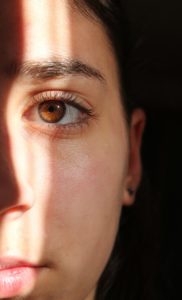Have you ever asked yourself the question, “Do I have OCD?” If so, continue reading, because this article is for you.
First of all, what is OCD? Obsessive Compulsive Disorder (OCD) causes people to experience frequent, recurring and unwanted thoughts, beliefs and sensations. It affects a large number of people across the United States and is one of the many disorders recognised by the Diagnostic and Statistical Manual of Mental Disorders, Fifth edition (DSM-5).
 People with OCD find that their recurring thoughts and ideas compel them to repeat certain actions – over and over again in some cases. Some well-known examples of OCD-related behavior include washing hands to an excessive level and cleaning multiple times a day. The compulsive nature of these behaviors tends to escalate to the point where the person’s daily life is being severely affected and their quality of life deteriorates.
People with OCD find that their recurring thoughts and ideas compel them to repeat certain actions – over and over again in some cases. Some well-known examples of OCD-related behavior include washing hands to an excessive level and cleaning multiple times a day. The compulsive nature of these behaviors tends to escalate to the point where the person’s daily life is being severely affected and their quality of life deteriorates.
Not all people who have symptoms similar to OCD experience a severe impairment in the quality of their life. In some cases, OCD-like symptoms are milder, and these people are able to live relatively regular lives, albeit a life regimented by some kind of repetitive actions. These people do not meet the criteria to be diagnosed as having OCD, however. Invariably, clinical OCD has a significant impact on a person’s daily life functioning.
The rigidity of the compulsions that are the hallmarks of OCD makes life difficult for people suffering from the disorder. Generally, the compulsions are not helpful and if the person is somehow prevented from completing them, they experience significant distress. They may understand that their thoughts and obsessions are unhelpful but find it stressful to try to stop the thoughts and behaviors.
How is Obsessive Compulsive Disorder Diagnosed?
As with many other mental disorders, Obsessive Compulsive Disorder has a number of criteria that a person must meet in order to get a diagnosis.
DSM-5 defines obsessions as:
- Thoughts, urges or images that are both recurrent and persistent, and which the person experiencing them finds distressing and intrusive. These kinds of thoughts and urges cause a significant level of anxiety and distress.
- The person with obsessive thoughts and urges makes attempts to deal with them by performing some kind of action, known as a compulsion.
Compulsions are defined as:
- Behaviors that are completed repetitively, such as checking and re-checking doors, repeated hand washing, ordering items alphabetically or numerically.
- Mental activities that are performed repetitively, such as counting, praying, and repetition of words sub-vocally.
- These are actions that the person feels compelled to complete due to a particular obsession or extremely rigid rules that they apply to their lives.
- These behaviors have the purpose of reducing the individual’s anxiety or distress levels or may be perceived as a means of preventing some feared situation from happening.
- These behaviors are not logically or realistically connected to the situations that the person believes they will prevent, and/or are performed in a highly excessive manner.
Other things that are considered when a clinician is assessing a person for OCD include the types of obsessions and compulsions and the amount of time that is spent on them.
Generally speaking, for a diagnosis of OCD, the obsessions and compulsions would be required to take up at least an hour a day or have a significant impact on a person’s quality of life in terms of distress, social impact, a person’s ability to work, and the impact on family life. The way that a person with OCD functions on a day to day basis is an important aspect of diagnosis.
Do I Have OCD?
If you’re wondering, “Do I Have OCD?” it’s important that you take an evaluative look at your life. For example, someone who has addictions to drugs, alcohol or prescription medications would not fit the diagnostic criteria for OCD, especially if the behaviors are caused by the addictions.
 Likewise, underlying medical conditions need to be considered as a cause for obsessive or compulsive behaviors, and other mental health disorders need to be ruled out. It is not helpful to be diagnosed with OCD if it is another mental health issue causing the symptoms.
Likewise, underlying medical conditions need to be considered as a cause for obsessive or compulsive behaviors, and other mental health disorders need to be ruled out. It is not helpful to be diagnosed with OCD if it is another mental health issue causing the symptoms.
One example of mental health disorders that can be confused with OCD is body dysmorphic disorder. People experiencing body dysmorphia are obsessive about their appearance. Only a mental health professional is adequately qualified to differentiate between mental health disorders that may resemble OCD.
Examples of Compulsions in OCD
- Cleaning the home repeatedly
- Washing excessively
- Counting
- Excessive re-checking of things – for example, locks, door handles, switches and appliances.
- Excessively checking in with friends and family members to make sure they are safe.
- Repeatedly ordering or re-arranging things into a specific order or what you perceive as “perfect.”
Examples of Obsessive Thoughts in OCD
- Being afraid of being infected by germs
- Being afraid that you might hurt yourself or someone else
- Experiencing intrusive thoughts and images of a violent or sexual nature
- Excessive focus on superstitions – things that you regard as either “lucky” or “unlucky.”
Treatment Options for OCD
With OCD, one of the most effective treatment options is therapy. Some therapists would argue that therapy is essential if you want to understand and overcome your obsessions. There are a variety of therapy options that are suitable for working through the issues associated with OCD.
A common therapy option for OCD is known as exposure and response prevention (ERP). Therapists who specialize in the treatment of OCD tend to use this form of therapy more than any other type. ERP is actually a type of cognitive behavioral therapy (CBT). ERP has two primary components. Exposure, as the name suggests, requires someone to expose themselves to the same situations, thoughts, objects and so on that trigger the anxiety and compulsive behaviors.
The response prevention stage of ERP is about choices. When exposed to a compulsion trigger, you have a choice whether or not to begin the compulsive behavior. The goal of ERP, therefore, is to work with a therapist in order to reach the point where you can choose not to begin the compulsive actions. Once you can choose not to engage in compulsive behavior with the therapist, you can work on making that same choice on your own.
Some people are alarmed by the idea of deliberately exposing themselves to the things that trigger their obsessive compulsive behaviors. It is a frightening prospect since the disorder is a result of maladaptive coping mechanisms designed for avoidance. With ERP, you have to make an active choice to face the triggers head on. Despite the fear this may cause, ERP is actually a very effective means of developing a range of tools to help you cope with your OCD.
Medication for OCD
 Therapy is very effective for OCD, but another treatment option is medication. You can talk to a Psychiatrist about what medications can be prescribed. Even if you decide not to use medication, it is still helpful to explore the options available.
Therapy is very effective for OCD, but another treatment option is medication. You can talk to a Psychiatrist about what medications can be prescribed. Even if you decide not to use medication, it is still helpful to explore the options available.
The type of medication most frequently prescribed for OCD belongs to the SSRI class – medications that are usually prescribed to treat the symptoms of depression. SSRIs have been shown to be effective in helping people to manage the symptoms of OCD. When SSRIs are used to treat OCD, however, higher doses tend to be needed than when treating depression. These higher doses are still safe and do not usually increase the side effects.
Helping Yourself When You Have OCD
Working through the issues surrounding your OCD with a professional is a great start in treating the disorder, but professional help is only part of the solution. Generally, therapists will ask clients to complete homework exercises, such as practicing the techniques learned in sessions.
Additionally, there are other things that you can do that will have a positive impact on your overall wellbeing as well as your recovery from OCD. Finding ways in which you can relax, discovering successful distraction techniques and spending time on activities that take your mind off both your disorder and your treatment are all beneficial.
Yoga Meditation
When it comes to relaxing, yoga and meditation can be an excellent place to start. You may find that your OCD treatment can become exhausting, particularly when you’re working on the more challenging exposure aspects. Practicing yoga and meditation can help you to learn how to quiet your mind when you’re feeling anxious or distressed.
Mindfulness
Calming your mind can also be achieved through the practice of mindfulness. It is a technique that is sometimes learned during therapy sessions, but once you understand the principles, you can practice whenever you feel the need to. Your therapist can give you advice, and there are also books that you can use to expand your understanding of mindfulness.
Exercise
It’s a well-known fact that exercise is beneficial for a wide range of mental health conditions – including OCD. When you exercise, you have an outlet for feelings of frustration, and there is the additional benefit in the release of endorphins. When endorphins are released, your body is flooded with chemicals that trigger positive feelings. You don’t have to go to the gym, either. Simply going outside for a brisk walk is just as effective.
Be your own cheerleader and advocate
 It can be tempting to look to other people for acceptance and/or praise, but it is important that you don’t rely on others in that way. It’s much better for your recovery if you learn to self-affirm by praising yourself as you progress along the recovery journey. Be your own best cheerleader. It’s also important that you advocate for the things that you need, too.
It can be tempting to look to other people for acceptance and/or praise, but it is important that you don’t rely on others in that way. It’s much better for your recovery if you learn to self-affirm by praising yourself as you progress along the recovery journey. Be your own best cheerleader. It’s also important that you advocate for the things that you need, too.
Don’t wait for perfection before adopting an attitude of gratitude
This advice doesn’t just apply to people with OCD. In all areas of life, you should learn to stop waiting for some kind of perfection or completion before you allow yourself to be grateful. You don’t have to be fully recovered in order to feel grateful. Celebrate where you are on the journey, and the small victories as well as the big ones. You can be grateful for today instead of only focusing on the future.
Talking to God and Looking to His Word
Whatever trials that we face in life, it’s important to remember that we can always lean into God for support. God is always available to offer comfort and gives us the hope that we need in difficult times. The Bible can offer a lot of help when you are struggling. Here are some examples.
The Lord is my shepherd, I shall not want. He makes me lie down in green pastures; He leads me beside quiet waters. He restores my soul; He guides me in the paths of righteousness for His name’s sake. Even though I walk through the valley of the shadow of death, I fear no evil, for You are with me; Your rod and Your staff, they comfort me. You prepare a table before me in the presence of my enemies; You have anointed my head with oil; my cup overflows. Surely goodness and loving kindness will follow me all the days of my life, and I will dwell in the house of the Lord forever. – Psalm 23
What this Scripture is saying is that the Lord, who is our Shepherd, will guide us to find everything that we need, including water, food, love, and work – in the same way, that a shepherd would with a flock of sheep. God helps us even when we deviate from what is right. When the psalmist says, “I shall not want,” it’s a clear reference to the fact that God promises to take care of our needs. God protects us; therefore, we have no reason to worry.
Trust in the LORD with all your heart and lean not on your own understanding; in all your ways submit to him, and he will make your paths straight. – Proverbs 3:5-6
This verse from Proverbs is a great source of comfort for many people, particularly during difficult times. God says that He will direct our journey through life, but we have to make a complete commitment to Him. When we focus on God and His Word, we’re allowing Him to lead us and depending fully on Him. To fully focus on God, we have to be intentional about turning our thoughts to Him (rather than focusing on our struggles, such as obsessions).
Some other Scriptures you may find helpful are:
Humble yourselves, therefore, under God’s mighty hand, that he may lift you up in due time. Cast all your anxiety on him because he cares for you. – 1 Peter 5:6-8
Peace I leave with you; my peace I give you. I do not give to you as the world gives. Do not let your hearts be troubled and do not be afraid. – John 14:27
Now may the Lord of peace Himself continually grant you peace in every circumstance. The Lord be with you all. – 2 Thessalonians 3:16
Faith Without Works is Dead
It is certainly true that God will always be there to support, comfort and guide us, and we can put our trust in His faithfulness to us when we seek Him. A short verse in James 2:26 reminds us that “Faith without works is dead.” Every Christian needs to consider this verse, no matter what you are facing. While we absolutely need to be reading the Bible and praying and trusting in God to help us in our difficulties, we have to put in the work ourselves, too.
There is nothing wrong with praying to God and asking Him to help you on your journey towards recovery from obsessive compulsive disorder. However, it’s important that you remember that while God will help and support you, you have to put in the work yourself, too. When you combine God’s guidance with your own efforts (both alone and with a therapist) to recover from the symptoms of Obsessive Compulsive Disorder, you are in a much stronger position.
In Summary
Although Obsessive Compulsive Disorder can have a huge impact on people’s lives, it is very treatable. There is hope of recovery for everyone who is struggling with the distressing symptoms. Don’t be afraid to reach out to a Christian counselor to help you work through the difficulties that you’re facing. Recovery can be a big challenge, but when you lean on the support of God and others around you, it is possible to walk free from OCD.
“Eye,” Courtesy of Guiliamar, pixabay.com, CC0 License; “Day 021” Courtesy of Holly Lay, Flickr.com, CC BY 2.0 License; “Meds”, Courtesy of Jessica7191, Pixabay.com; CC0 License; “Prayer”, Courtesy of Reenablack, Pixabay.com, CC0 License



